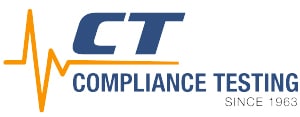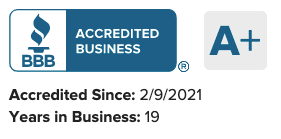If you’re planning to bring your electronic device to market, or import an electronic device into the United States, you’ll need to make sure it complies with all FCC regulations, such as FCC Part 15.
Electronic devices that intentionally emit radio frequency (RF) energy are classed by the FCC as intentional radiators. Most wireless devices, such as phones, Wi-Fi equipment, and others, fall into this category.
Below, we’ve explained what intentional radiators are, as well as how the FCC determines the difference between intentional and unintentional radiator devices.
We’ve also covered what you need to know about the FCC testing and compliance process for intentional radiators, including the steps you’ll need to take to get the FCC mark for your device and bring it to market in the United States.
For more information about FCC compliance, or to request a free quote for testing your device, you can contact our team online or call us at 866-540-5287.
What is an Intentional Radiator?
An intentional radiator is any device that’s designed to intentionally emit RF energy as a part of its normal operation.
These devices rely on radio frequency energy to communicate with other devices. Most devices that are classed as intentional radiators allow for wireless communication of some type, ranging from voice calls to control of remote devices.
Common examples of intentional radiators include:
- Cellular devices, such as smartphones
- Cordless home phones and communication devices
- Remote control devices that use radio frequency technology
- Wi-Fi routers, signal boosters and other networking devices
- Wireless microphones and audio equipment
- Wireless security and alarm systems
- Remote garage door openers
- Bluetooth devices
The FCC classifies electronic devices as either intentional radiators, unintentional radiators or incidental radiators.
Unintentional radiators are electronic devices that are not designed to emit RF energy, but may still cause unwanted produce emissions that may interfere with other devices as a byproduct of their design or internal components.
Common examples of unintentional radiators include appliances, computers, printers, electrical tools and other devices that are not designed to emit radio frequency energy, but still use digital logic components.
Finally, incidental radiators are devices that can produce byproducts of radio emissions, such as light switches and electrical tools that do not use computer operations.
Not sure what type of radiator your device is? Feel free to contact our engineers online or call us at 866-540-5287 to ask a question and get free help with the FCC compliance process.
FCC Testing & Certification for Intentional Radiators
By law, all electronic devices that can trigger electromagnetic interference (EMI) are required to comply with FCC regulations, such as FCC Part 15 or Part 18, before entering the market in the United States.
If your device is classified as an intentional radiator, you need to complete FCC testing and gain certification from the FCC for your device before it can legally go on sale.
Achieving FCC certification involves several steps:
- Pre-compliance. One of the most effective ways to ensure your device passes through the FCC testing process is to carry out pre-compliance testing by checking your device’s emissions and immunity during the design and development phases.
- FCC lab testing. Before going to market, you’ll need to test your electronic device in an accredited testing lab. Testing for FCC certification involves measuring your device’s RF emissions, its conducted emissions, as well as its immunity to interference.
- Preparing documentation. Following testing, you’ll need to prepare documentation for your device, including the device’s manual and lab reports. Our team can help you with this step to ensure you have all necessary documentation for FCC certification.
- Apply for FCC certification. After completing testing and preparing documentation for your product, you’ll apply for a grant of certification with a TCB. You’ll receive a grant of certification and an FCC ID for your device, allowing it to enter the US market.
Following this process, you can affix the FCC mark to your device and start selling your device in the United States.
As an ANSI-accredited testing lab, we can help you with the entire FCC testing and compliance process for your device, from reviewing your device’s design and components to completing the FCC testing and certification process on your behalf.
Intentional Radiators and Declaration of Conformity (DoC)
In certain cases, devices classified as intentional radiators may be able to achieve compliance with FCC regulations through a less stringent process, which is referred to as a Declaration of Conformity (DoC).
The Declaration of Conformity authorization procedure is available for devices that operate in the 525-1705 kHz range, devices that operate below 490 kHz, and certain types of devices used for cable location, tunnel radios, and other specific purposes.
Exemptions for Non-Marketed, Low-Volume Devices
Devices that are manufactured in small quantities (five units or fewer for non-commercial use) that are not constructed from a kit may be exempt from the FCC authorization process due to their nature as personal use devices.
Contact us if you are developing a device for personal use and need assistance with the FCC compliance process.
Industrial, Scientific and Medical (ISM) Equipment
Devices that emit radio frequency energy for non-communications purposes, such as medical, industrial and/or scientific lab equipment, lighting and other devices, are regulated under FCC Part 18.
We offer testing and compliance services for Part 18 devices. Our team can help you to identify the specific regulations that apply to your device and complete the testing and FCC certification process.
Talk to Our Team About FCC Intentional Radiator Compliance
Completing testing and gaining authorization from the FCC is a key step in bringing your device to market. If your device is an intentional radiator, this typically means gaining FCC certification and an FCC ID for your device.
As specialists in electronics testing and regulatory compliance, we can help you with every step of the testing and FCC certification process.
To ask our engineers and compliance experts a question or request a free quote for testing your device, contact us online or call us at 866-540-5287.



